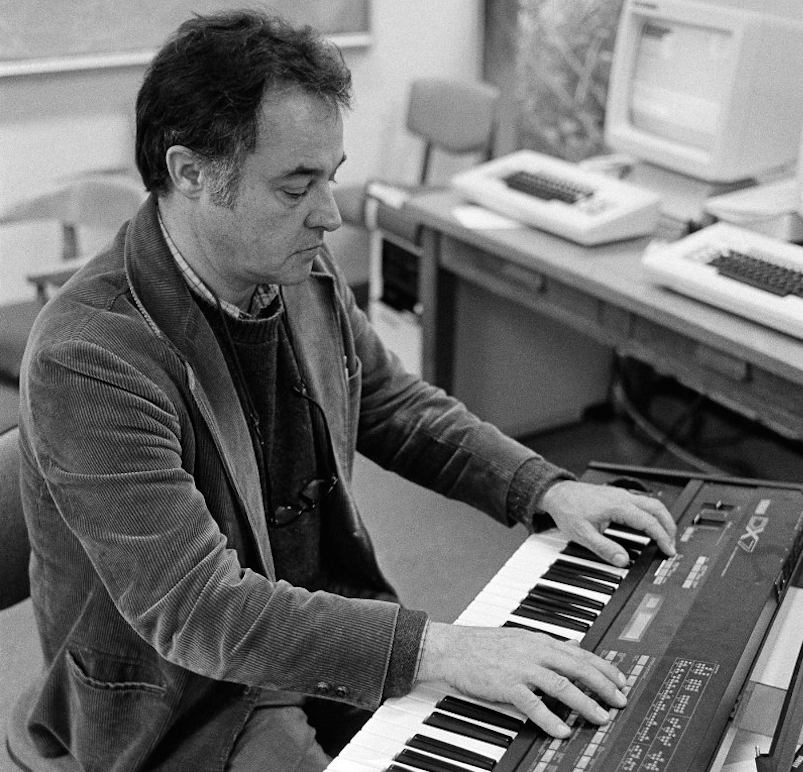n2doc
n2doc's JournalLetís Be Serious About Ted Cruz From The Start: Heís Too Extreme And Too Disliked To Win
By HARRY ENTEN
Texas Sen. Ted Cruz’s newly minted presidential campaign is the media equivalent of a juicy rib-eye that robbers use to distract a guard dog during a heist. He’ll get a ton of media attention, and he’ll get to spread his message — which may be all that Cruz is after — but Cruz almost certainly has no shot of winning the nomination, according to every indicator that predicts success in presidential primaries.
First, Cruz doesn’t have enough support from party bigwigs. To win the Republican or Democratic nomination, you need the backing of at least some of the party apparatus. At a minimum, your fellow party members shouldn’t hate you. Otherwise, you end up getting the Newt Gingrich 2012 treatment. That is, you get pounced on the moment you’re seen as a threat to win the nomination.
If we’re ever in a world where it looks like Cruz could win the nomination, you’ll very likely see such pouncing. You can read article after article about how Cruz has isolated himself in the Senate. It got so bad that he recently had to apologize to his Republican colleagues.
And the Cruz hatred doesn’t stop at the edges of the Senate cloakroom. Influential party actors dislike him, too. I can’t remember another Republican who united Ann Coulter, Pat Robertson, Jennifer Rubin and Thomas Sowell in opposition.
more
http://fivethirtyeight.com/features/lets-be-serious-about-ted-cruz-from-the-start-hes-too-extreme-and-too-disliked-to-win/
What Lies Beneath
As a kid in the 1960s, Jeff Held thought that having a nuclear company in his backyard made life more exciting in Apollo, Pennsylvania. About 2,400 people lived alongside the Nuclear Materials and Equipment Corporation (NUMEC), the town’s main employer. Held’s neighborhood subsisted on atomic lore: Just 33 miles down the road in Pittsburgh, the Westinghouse Corporation had helped construct the world’s first nuclear submarine, and in Apollo, NUMEC consequently manufactured the requisite nuclear fuel, a source of stirring pride minted by the Cold War.
To Held, the plant, its lights flickering over the western edge of town on the banks of the Kiskiminetas River, was “kind of neat.” When one of the town’s radiation monitors went off, children would dash through neighbors’ backyards to reach the facility—it was housed inside a refurbished steel mill with dirt floors, big windows, and dozens of smokestacks—to see what had happened.
As Held grew older, the plant that inspired his boyish thrill evolved into something more puzzling, and more sinister. NUMEC closed its doors in 1983, and in the mid-1990s, the federal government swooped in and declared several city blocks contaminated. Various agencies rolled in with bulldozers, razed the plant, and carted off the radioactive pieces, barrel by barrel, for disposal. Ever since, Apollo’s residents have been grappling with fears that NUMEC poisoned their town.
One bitterly cold day this January, Held—now 53 and Apollo’s mayor—drove me north on State Route 66, which cuts along one side of the old NUMEC site. A green chain-link fence outlines the desolate acreage where the factory once stood. Held, a stout man with a graying beard, gestured up a hill toward several decaying Victorian houses. The residents, he said, have suffered from various cancers: lung, thyroid, prostate, brain. They have argued that years of radiation soaking into their soil, air, water, clothes, and homes had led to their afflictions. To date, owners of the NUMEC property have shelled out tens of millions of dollars in compensation to locals who’ve filed suit.
more
http://foreignpolicy.com/2015/03/23/what-lies-beneath-numec-apollo-zalman-shapiro/
(disable javascript in your browser to get past paywall)
The Father of the Digital Synthesizer

“I was aware that I was probably the first person to ever hear these sounds, and that what I was hearing was something musical that had probably never been heard by anyone before — at least, not by anyone on this planet.”
— John Chowning, Inventor of FM Synthesis
Long before Stanford University was considered a technology powerhouse, its most lucrative patent came from an under-spoken composer in its music department. Over the course of two decades, his discovery, "frequency modulation synthesis," made the school more than $25 million in licensing fees.
But more importantly, FM synthesis revolutionized the music industry, and opened up a world of digital sound possibilities. Yamaha used it to build the world’s first mass-marketed digital synthesizer — a device that defined the sound of 80s music. In later years, the technology found its way into the sound cards of nearly every video game console, cell phone, and personal computer.
Despite the patent’s immense success, its discoverer, Dr. John Chowning, a brilliant composer in his own right, was passed over for tenure by Stanford for being “too out there.” In Stanford’s then-traditional music program, his dabblings in computer music were not seen as a worthy use of time, and he was largely marginalized. Yet by following his desire to explore new frontiers of audio, Chowning eventually recontextualized the roles of music and sound, found his way back into the program, and became the department chair of his own internationally-renowned program.
This is the story of an auditory pioneer who was unwilling to compromise his curiosity — and who, with a small group of gifted colleagues, convinced the world that computers could play an important role in the creation of music.
more
http://priceonomics.com/the-father-of-the-digital-synthesizer/
What Spending a Year in Space Does to Your Mind
It's stressful, but transcendental too.
FRANCIE DIEP
This week, NASA and the Russian Federal Space Agency plan to send two astronauts to spend a year in the International Space Station. This will be one of the first times people have stayed in space for such a long period of time, and the first time anybody has spent so much time aboard the ISS. (Previously, a few Soviet and Russian cosmonauts spent more than a year aboard the Mir space station.)
While they're up there, American Scott Kelly and Russian Mikhail Kornienko will take part in more than a dozen studies about the physical and mental effects of working in space longer-term. They'll take periodic cognition tests, undergo sleep monitoring, and write in journals that psychologists will later read. Agencies will use all this data to predict what will happen if, in the future, humans build a moon base, or visit asteroids or other planets that require flights longer than a year.
What do psychologists already know about what may happen to Kelly, Kornienko, and the long-term astronauts of the future? Quite a bit, actually. Psychologists have been analyzing astronaut diaries and other first-person anecdotes for decades. They've also developed new ways to help astronauts cope with the increasingly international flavor of space missions, although on-board psychiatric help might still be a bit sparse.
more
http://www.psmag.com/health-and-behavior/psychology-of-long-missions-in-space
Tuesday Toon Roundup 1:Ladies and Gentlemen, The Cartoonists Present Rafael "Ted" Cruz!




















'Essentially, We Have Discovered a New Layer in the Earth'
Nine hundred and thirty miles underground, Earth’s got a bit of a traffic problem. Sinking tectonic plates reach this depth, and they get stuck. Tectonic pile-ups in the lower mantle may trigger deep and powerful earthquakes. It’s sorta like a clogged pipe, only the consequences are mind-bogglingly greater.
Now, it’d seem we’ve found the culprit. By squeezing minerals between diamond anvils, a study team led by geologist Lowell Miyagi and mineral physicist Hauke Marquardt has uncovered an ultra-hard layer of rock within Earth’s lower mantle, one which appears to be backing up the whole tectonic conveyor belt. Rocks at 930 miles down are 300 times stiffer than they are half that depth. For a more salient comparison, they’re a thousand billion billion times stiffer than peanut butter. The discovery appears today in Nature Geoscience.
“The Earth has many layers,” said Miyagi in a statement. “Essentially, we have discovered a new layer in the Earth. This layer isn’t defined by the minerals present, but by the strength of these minerals.”
What’s more, the tectonic traffic jam caused by this stiff layer may explain mysterious earthquakes occurring deep inside our planet. The ultra-hard layer could also account for strange magmas spewing out of seafloor volcanoes across the world. And finally, just as city traffic produces heat, this geologic pile-up could also mean that the Earth’s interior is a lot hotter than we expected.
more
http://motherboard.vice.com/read/a-new-layer-in-earths-mantle-could-explain-tectonic-mysteries
Charles P Pierce on Carnival Cruz
OK, so now it's serious. At some level, at least. We have our first gen-u-wine, solid gold, Fox News-approved presidential candidate of the 2016 election. And it's Tailgunner Ted Cruz, the Calgary Stampeder himself, who will be calling shotgun in the Republican clown car at Liberty University in Virginia. This, of course, is the diploma mill founded by the late Jerry Falwell, whose presence in American politics was partly responsible for laying the foundation in those politics that inevitably led to the absurdity of Ted Cruz as a candidate for president.
For myself, I think this is a pretty smooth move. I've always been of the opinion that it's better to get the formal announcement out of the way as soon as you decide to throw yourself into the process. The endless Speculation Primary ends immediately. And the endless Money Primary gets just a touch sanctified. And there's something undeniably open about not engaging in the kabuki process of setting up an "exploratory" committee and doing the Dance of the Seven Veils for the various plutocrats who have sublet our politics. Ted Cruz is now a candidate for the presidency of the United States. Period. So now, we can ask the question honestly?
Is this guy freaking kidding?
Ted Cruz is an extremist fanatic. He represents politics and a vision of government that was out of date in 1860. He is connected, rhetorically for the most part, to the darkest manifestations of the American political Id. And he combines that with a kind of unendurable self-righteousness that has alienated even the other extremist fanatics in the conservative leadership elite. From an early age, Cruz has been taught that he is the hidden golden child of a fundamentalist America redemption. (The source of this messianic self-regard is his father, preacher Rafael Cruz, who is not an extremist. He's simply a lunatic.) His role in the government shutdown in 2013 is still resented by many of his fellow Republicans, especially the comical presumption by which Cruz went behind John Boehner's back—or over his prone and motionless body (opinions vary)—to gin up the fringier denizens of the monkeyhouse.
But that's the Republican party's problem. Our problem is that Cruz's prescriptions for the country set an outward boundary for the right side of the political spectrum that virtually is invisible to anyone to the left of Richard Nixon. That's the starting point for the rest of the Republican field. He's no less bughouse on the Affordable Care Act than he was when he tried to wreck the government over it two years ago. He wants to close the IRS. He is absolutely sure about all the bad ideas he supports. He looks in the mirror and sees more than a statesman. he sees a redeemer.You will be told that the rest of the field constitutes some sort of ill-defined "middle." That's nonsense. This is still the party in which Ted Cruz is considered a serious person because there are enough people in The Base who support him and his retrograde agenda. The 2016 election has begun. The bar is set where you need a metal detector to find it.
http://www.esquire.com/news-politics/politics/news/a33831/ted-cruz-will-announce-2016-presidential-candidacy/
Profile Information
Gender: Do not displayMember since: Tue Feb 10, 2004, 01:08 PM
Number of posts: 47,953













